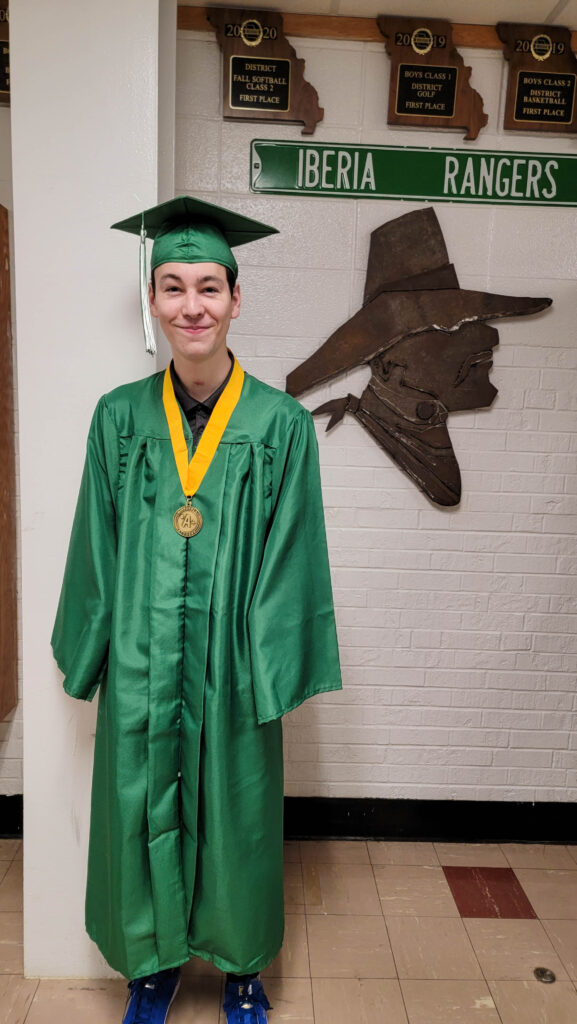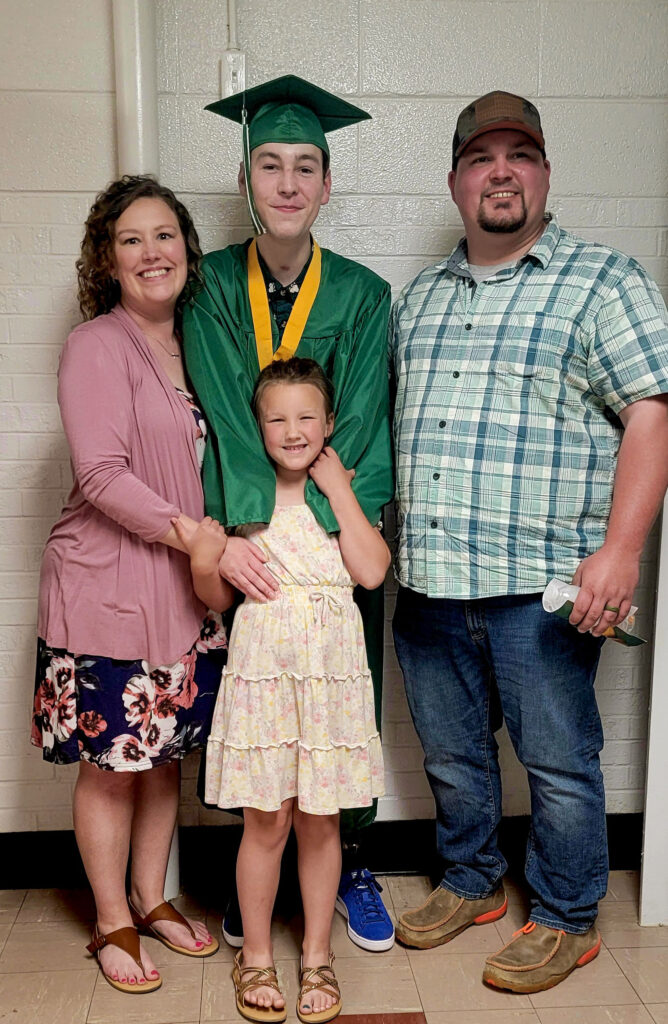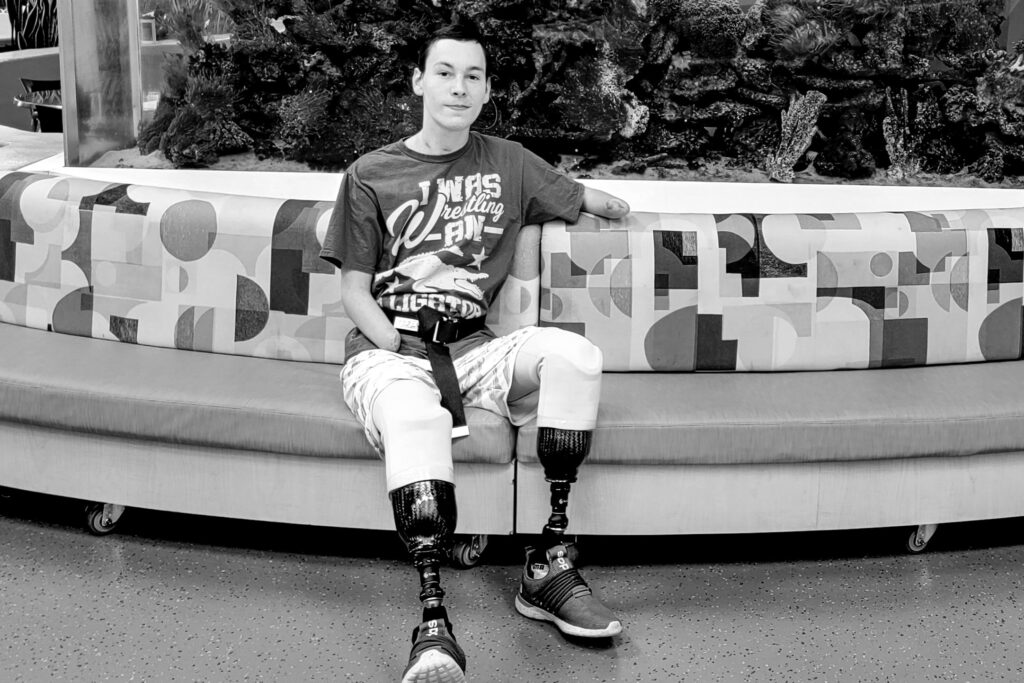A cochlear implant provided by Washington University neurotologist Matthew Shew, MD, provided a boost to one patient’s struggling morale. But, this patient’s determination and remarkable outcome surprised everyone.
In November 2022, Dane Steenburgen was a typical high school senior. He had just finished his final season of soccer and attended a high school dance on Friday night. By the following Tuesday however, things would look much different.

Dane came down with the flu and quickly became very ill. His disease, diagnosed as Influenza A and pneumonia, resulted in septic shock, his body’s extreme overreaction to the infection. Subsequent cardiopulmonary failure necessitated several weeks of lifesaving ECMO support – a means of removing a patient’s blood, supplying it with oxygen, and returning it to the body. However, inadequate tissue perfusion during this time would require Dane to lose portions of all four limbs.
Dane’s mother Christina recalled that early fight for life.
“Dane was in and out of consciousness for several weeks while they did surgeries and worked to fight the infection in his body,” she said. “When he was awake, we realized something else was wrong. It took several weeks to get a hearing test, but we learned Dane had lost almost all of his hearing.”
Communication was almost impossible for weeks due to Dane being intubated and then having a tracheostomy. He couldn’t hear, and he couldn’t talk. Dane would later say that waking up like that – unable to hear what was happening and unable to ask questions – was the scariest part of his ordeal.
The family used white boards to communicate as best they could. Hearing aids and bone conducting headphones were of little help. After several weeks of struggling, one of the doctors mentioned the possibility of a cochlear implant. His mother would say just having that option available provided great encouragement to both Dane and those who had watched him struggle to communicate.

Dane was evaluated by clinical audiologist Brenda Gotter and Washington University neurotologist Matthew Shew, MD. When testing his open set speech perception using the strongest hearing aids, Dane was only able to understand 6% of words and 8% of sentences presented to him.
Shew explained to the family that most implant recipients achieve around 62% speech understanding after six months of rehabilitation following a cochlear implant. For this patient, that didn’t seem adequate.
“That’s not good enough; I’ll do better,” said Dane.
And better he did. He received the implant in March, and it was activated in early April. By May, with the help of clinical audiologist Karen Mispagel, he was at 74% word recognition and 95% sentence recognition, a feat that impressed his surgeon.
“It was remarkable to see Dane go from relying on his iPad for communication to holding conversations on his own just three weeks post-activation,” said Shew. “I am very happy to see him do so incredibly well with his cochlear implant after everything he has been through. I always tell patients considering a cochlear implant they need to be motivated and allow time to adapt to the device. Dane’s determination and perseverance is an example for all of us.”

Dane says his hearing is definitely different than it was previously, but it’s a great improvement from struggling to understand everything that was going on around him.
“Of all the challenges I’ve been through, not being able to hear was mentally the toughest thing,” he says.
According to his mother, Dane is still a man of few words, but he has shown great determination to overcome his new circumstances. ‘I can do better’ has become his standard battle cry.
“Dane graduated in May, and he was able to hear them call his name,” she said. “He then walked across the stage for all to see he had overcome his circumstances. That is a gift we are all so thankful for and a moment we will cherish forever.”
